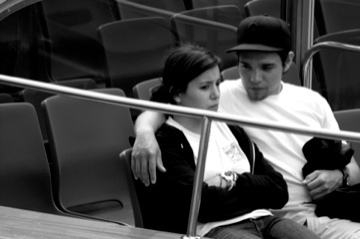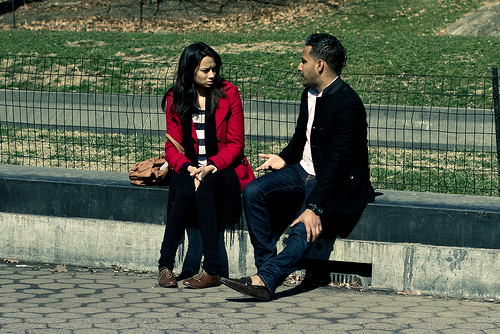All relationships have their ups and downs. Most couples solve their problems by talking to each other, compromising, and balancing the give and take of their relationship. However, if you find yourself in an abusive relationship, you will find that 99% of the time your partner will think that they are always right and that you are almost always wrong.
Abuse comes in all forms: physical, sexual, mental, emotional, verbal, or of any combination.
Key signs of an abusive relationship
There are many signs of an abusive relationship. Fear of your partner is the most telling sign. If you are constantly watching what you say and do in order to avoid a blow-up, there is a good chance you’re in an abusive relationship. If you are with someone who belittles you or tries to control you, you could be in an unhealthy relationship.

There are people who wonder why a person won’t just walk away from their abusive relationship. Unfortunately, they don’t understand that leaving an abusive partner can be very complicated and sometimes dangerous. People stay in abusive relationships for many reasons.
Conflicting emotions
- You are afraid of what will happen if you decide to leave the relationship. You may not feel safe leaving if you have been threatened by your partner.
- If you’ve grown up in an environment where abuse was common, you may not recognize your own unhealthy relationship.
- Being outed can feel scary especially for young people who are just beginning to explore their sexuality.
- It’s probably embarrassing for you to admit that you’ve been abused. You may worry that your friends and family will judge you because you are involved with an abusive partner.
- If your partner constantly puts you down and blames you for the abuse, it can be easy for you to believe them and think that the abuse is your fault. It can affect your self-esteem.
- You may hope that your abuser will change and stay in the abusive relationship. You want to believe your partner when they tell you they’ll change. You may only want the violence to stop, not for the relationship to end completely.
Pressure
- If the abuser is popular, it can be hard for you to tell your friends because you think that no one will believe you or that everyone will take the abuser’s side.
- Your culture or religion may influence you to stay rather than end the relationship for fear of bringing shame to your family.
- You may feel pressure to raise your children together, even if that means staying in an abusive relationship.
Doubt
- Adults often don’t believe that teens really experience love. You may feel like you have no adults to turn to or that no one will take you seriously, if something goes wrong in the relationship.
- Many young adults don’t report the abuse because they feel that the police will not help them.
- You may fear that reporting the abuse will affect your immigration status if you are undocumented. Also, if your first language isn’t English, it can be difficult to express your situation to others.
Rely on abusive partner
- You may have become financially dependent on your abusive partner and can seem impossible for you to leave the relationship.
- You may think that you have nowhere to go or no one to turn to once you’ve ended the relationship, especially if you live with your abusive partner.
- You can feel that your well-being is connected to the relationship if you are physically dependent on your abusive partner. This could heavily influence your decision to stay in an abusive relationship.
What Can You Do?
So, why don’t you just leave? Leaving an unhealthy or abusive relationship is never easy. Getting away from an abusive relationship may be difficult if you don’t know what you need to do as well as when to do it.
“Many women who experience domestic violence don’t know where to find the support they need to leave an abusive partner,” Anu Dugal, director of violence prevention at the Canadian Women’s Foundation.
There are emergency shelters which offers support and a safe place for women to begin rebuilding their lives. However, many people do not know that they exist.

How do you get out?
Have a safety plan. Work with a professional counselor to establish a way to safely get out of the relationship. They can help you make a step by step plan that will take into consideration the many dynamics involved in leaving the relationship.
Get support. You are going to need all the support you can get because your abusive partner is not going to make it easy for you. You might hear an apology or pleading that he/she will change. You might even see some tears. Unfortunately in some situations, he/she may choose to threaten you. Tell your friends and family that you are breaking up with him/her so they can help you if there is any trouble.
Leaving your abusive partner is not easy. Making the decision to stay or go can be confusing, difficult and very stressful. Get out when you can and get the help to identify how to move forward with your life.
This information is provided to supplement the care provided by your physician. It is neither intended nor implied to be a substitute for professional medical advice. CALL YOUR HEALTHCARE PROVIDER IMMEDIATELY IF YOU THINK YOU MAY HAVE A MEDICAL EMERGENCY. Always seek the advice of your physician or other qualified health provider prior to starting any new treatment or with any questions you may have regarding a medical condition.

